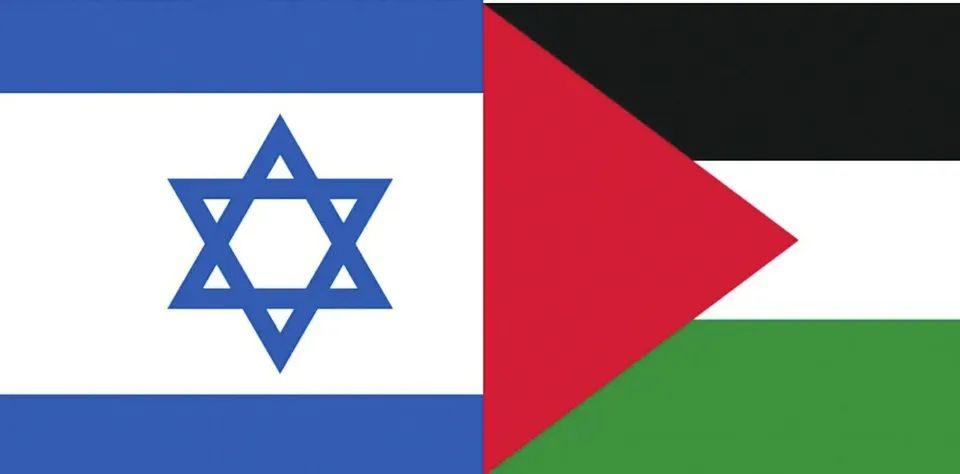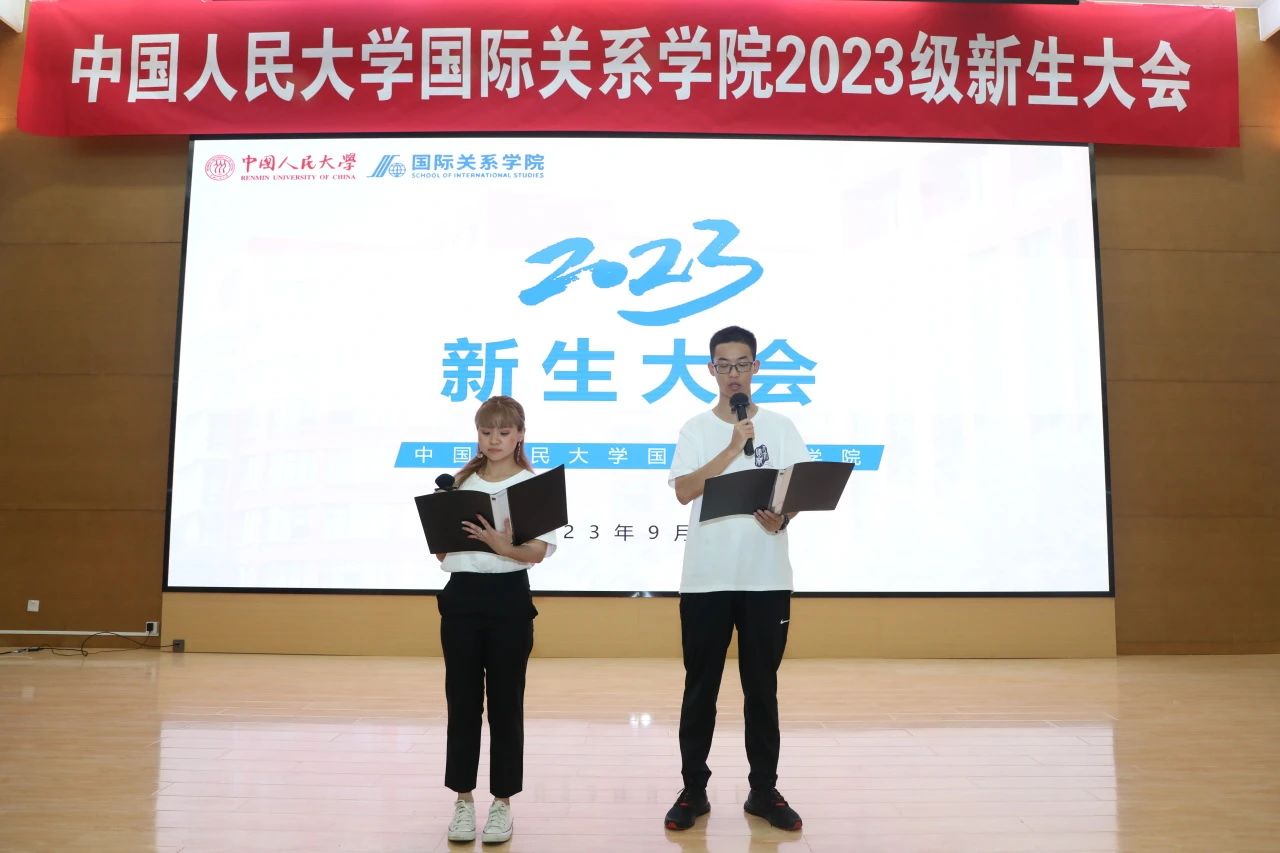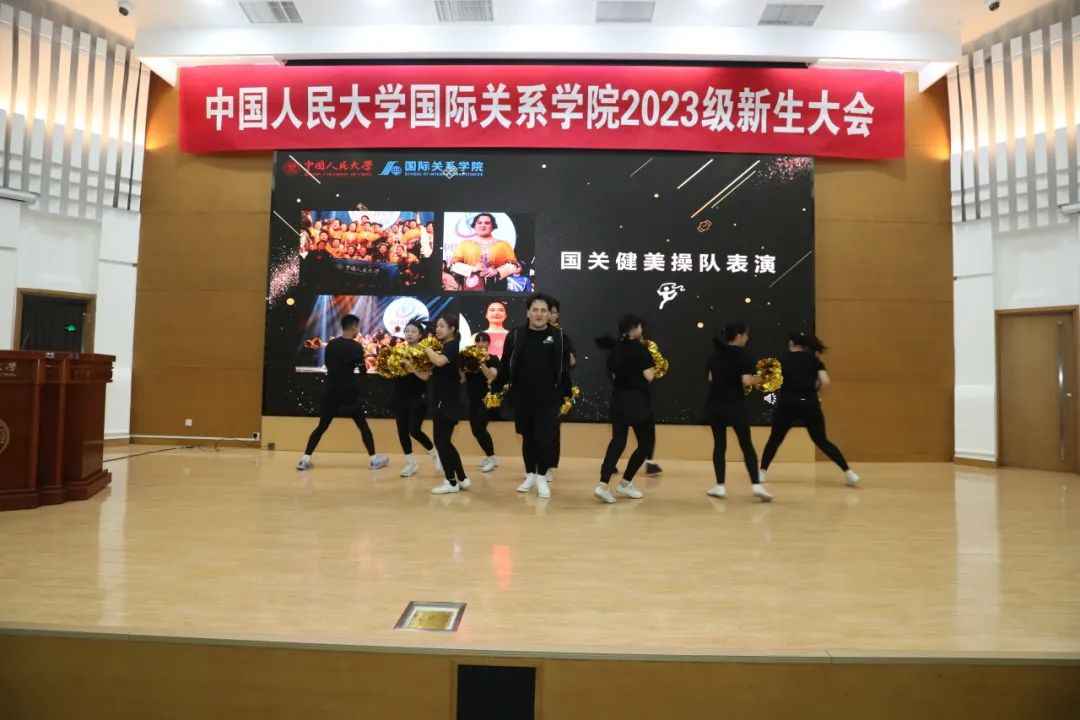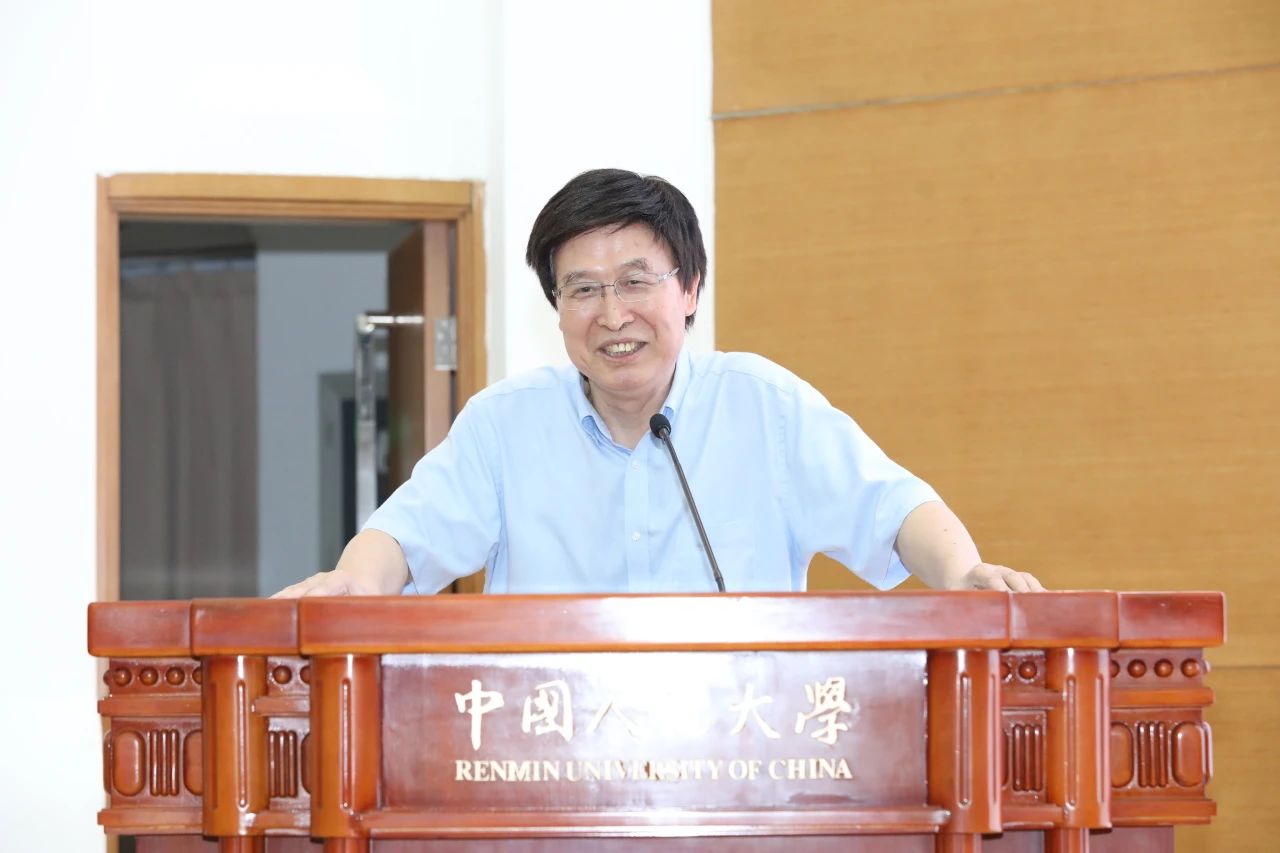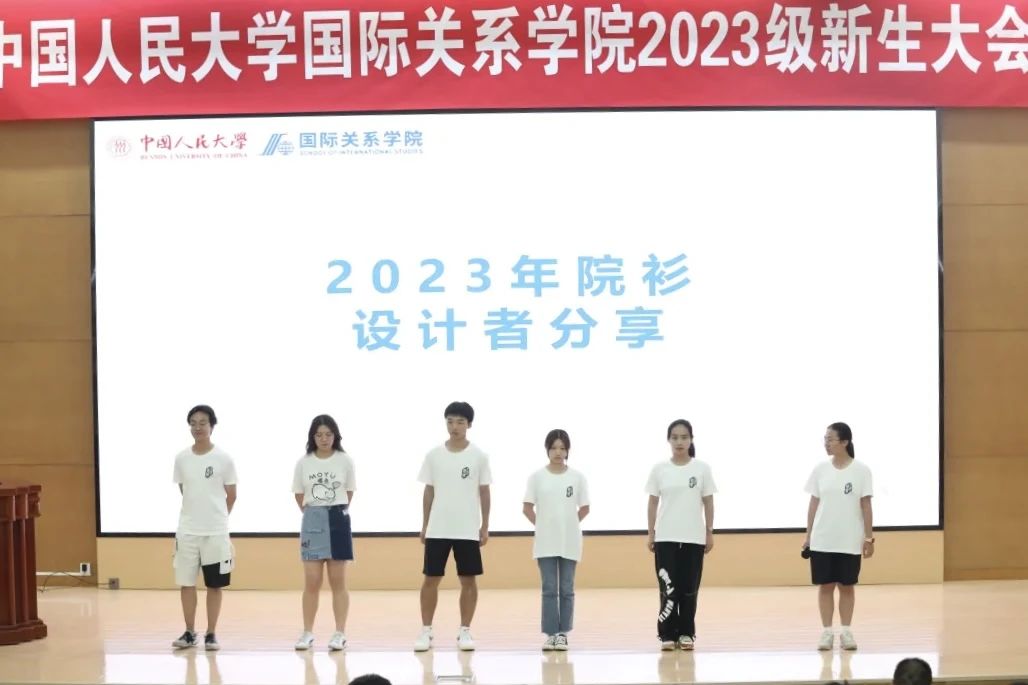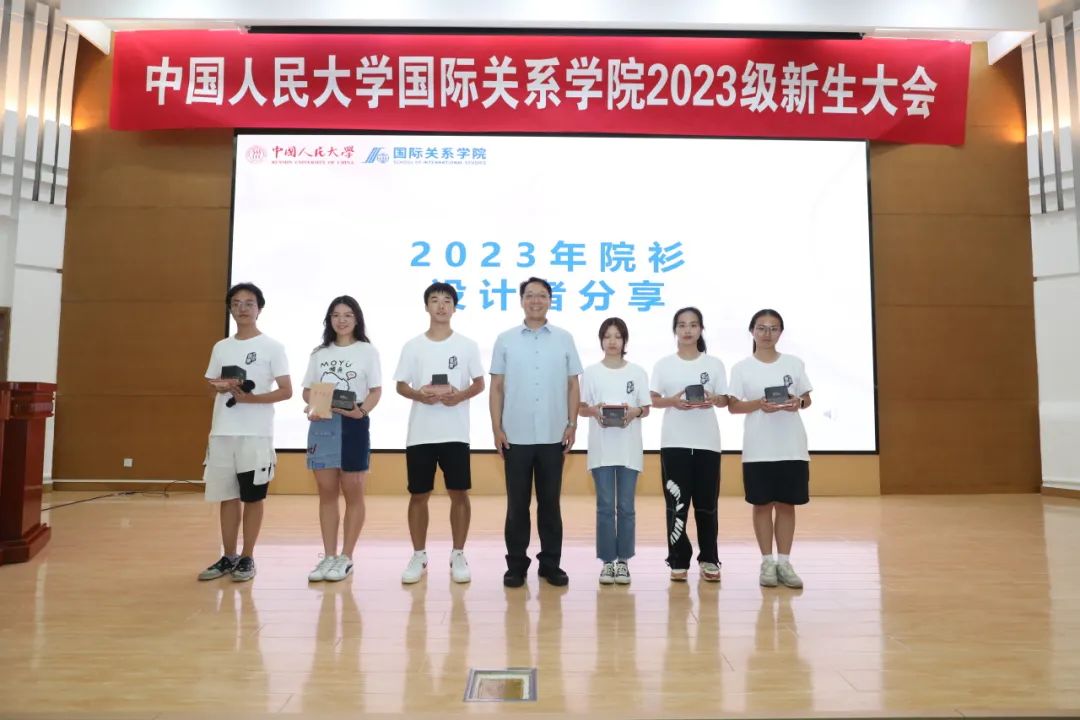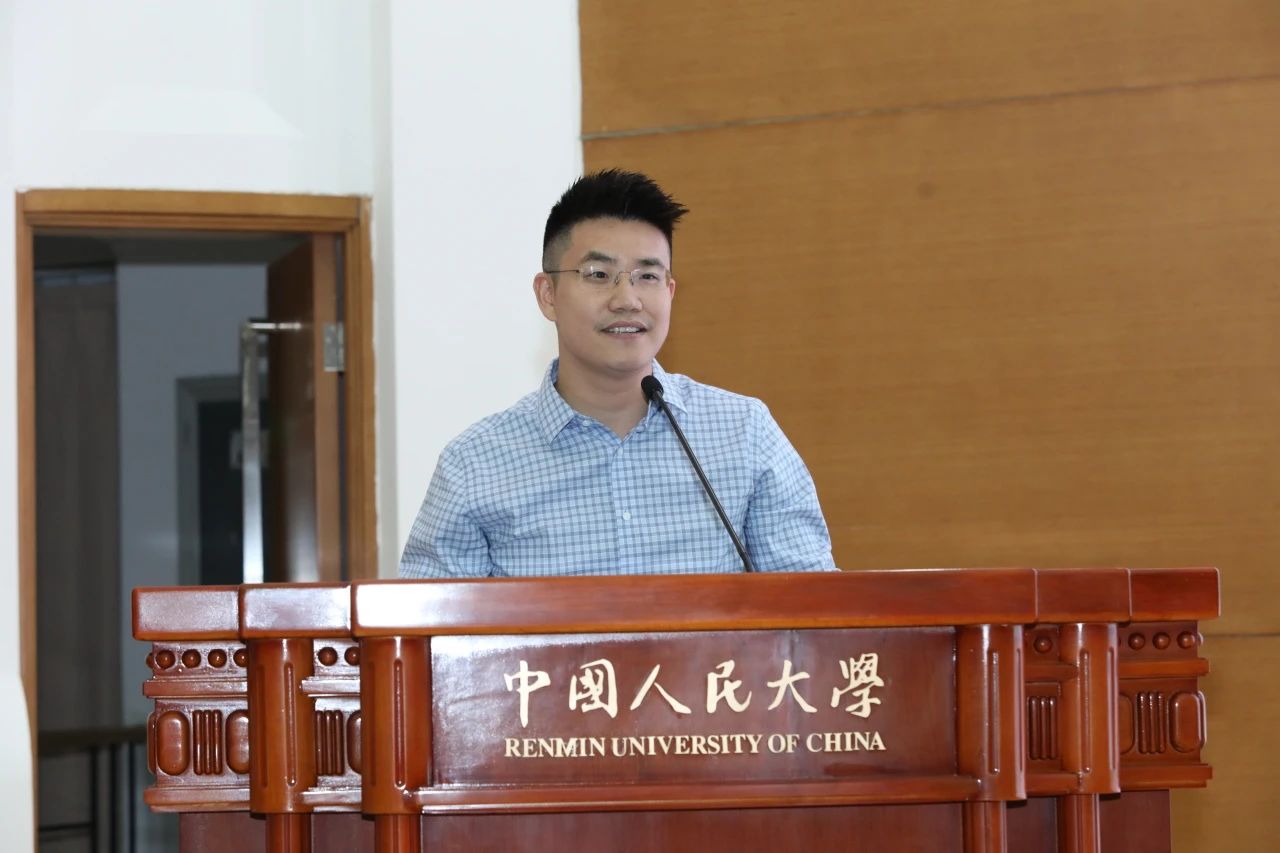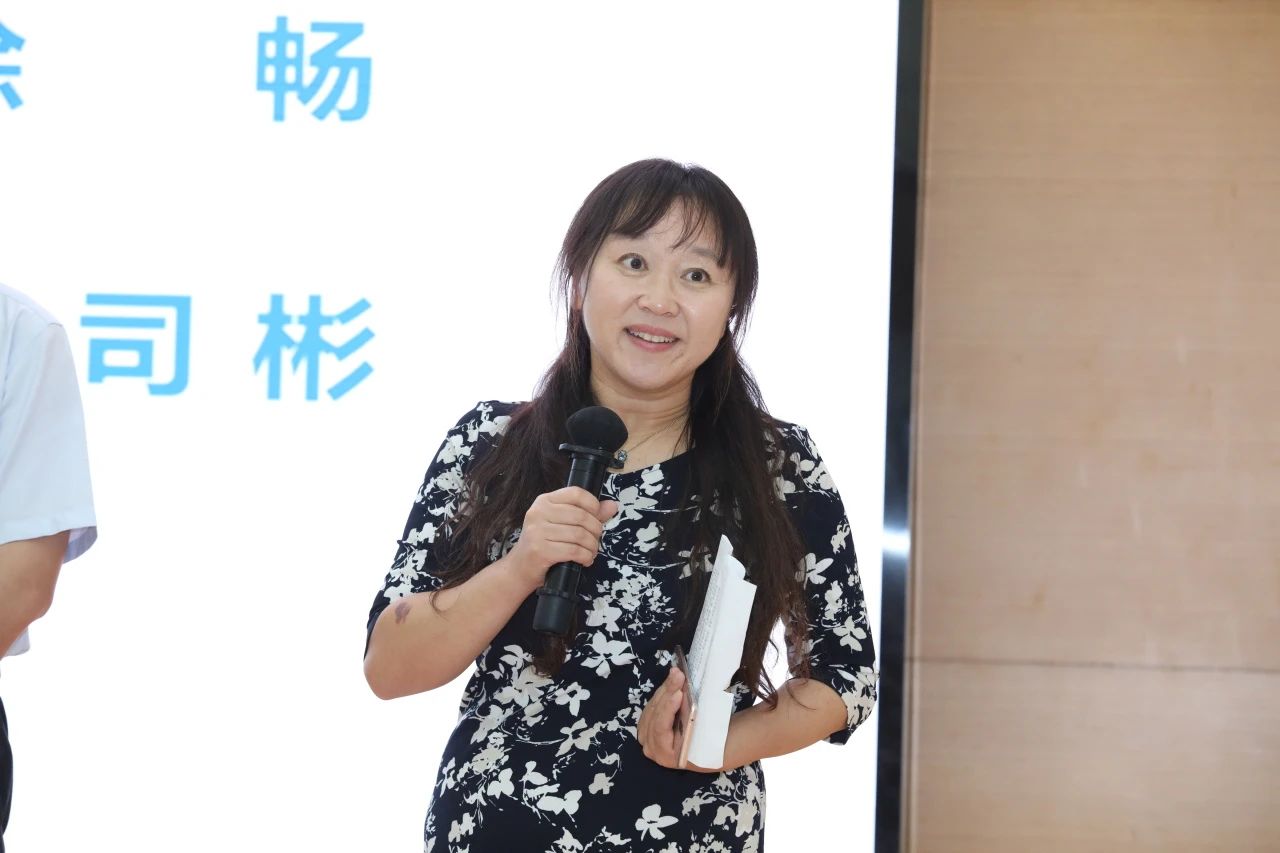In the autumn of September, the School of International Relations welcomed the freshmen of 2023. In order to help the freshmen adapt to the environment as soon as possible, help the freshmen grow up in an all-round way, lay a solid theoretical and practical foundation for the freshmen’s college life and even the new stage of life, promote the pattern of “three-whole education”, and cultivate the pioneers who can fully develop morally, mentally, physically, the United States and labor and are worthy of the important task of national rejuvenation. The School of International Relations will hold a series of lectures on orientation education for new students from September 4 to September 8, 2023.
Feeling the spiritual temperament of the People’s Congress
01 Discipline education
On the morning of September 4, 2023, the School of International Relations held the first admission education lecture series in Room 0402, Mingde Law Building. The lecture was delivered by Professor Yang Guangbin, Dean of the School of International Relations. The lecture theme was “Politics of Renmin University in the Political Development of China”. The lecture was presided over by Liu Yuxi, secretary of the Youth League Committee of the College.
Dean’s Lecture: Political Science of Renmin University in the Political Development of China
President Yang Guangbin first made a brief introduction to the concept of political science, emphasizing that China has been a political power since ancient times, and Chinese history contains a wealth of governance thoughts and political theories. He pointed out that political science is not only a discipline, but also an ideology and concept, which is closely related to the fate of the country. He pointed out that political science is not only a discipline, but also an ideology and concept, which is closely related to the fate of the country.
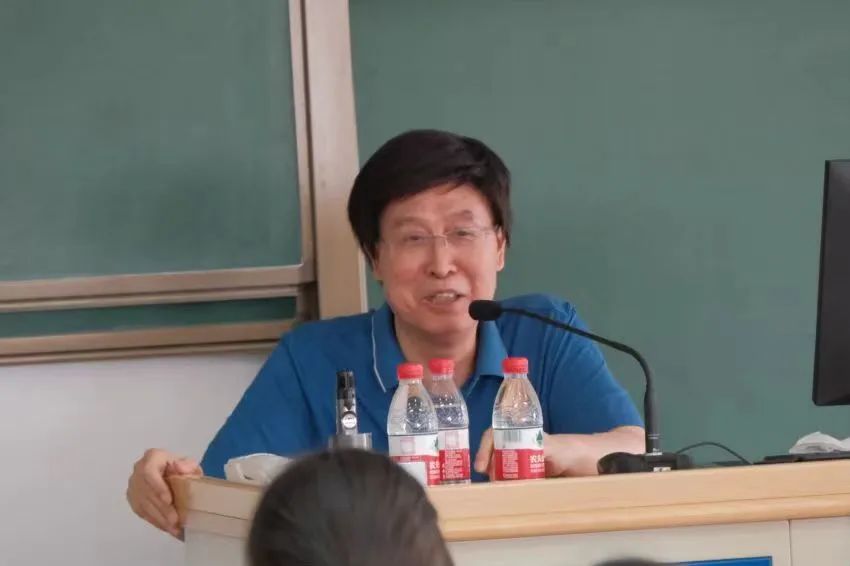
Then, President Yang Guangbin reviewed the early development and evolution of Western political science, and stressed that political science first exists as a theory, domestic affairs are related to the governance of the country, and international affairs are related to the survival of the country. He pointed out that the discipline of political science mainly includes two disciplines: political studies and international studies. Political studies mainly include political thought, comparative politics and Chinese politics, and international studies mainly include international relations and diplomacy. President Yang Guangbin mentioned that the government has played an important role in promoting the development of university disciplines, especially in the field of national security and regional and country studies.
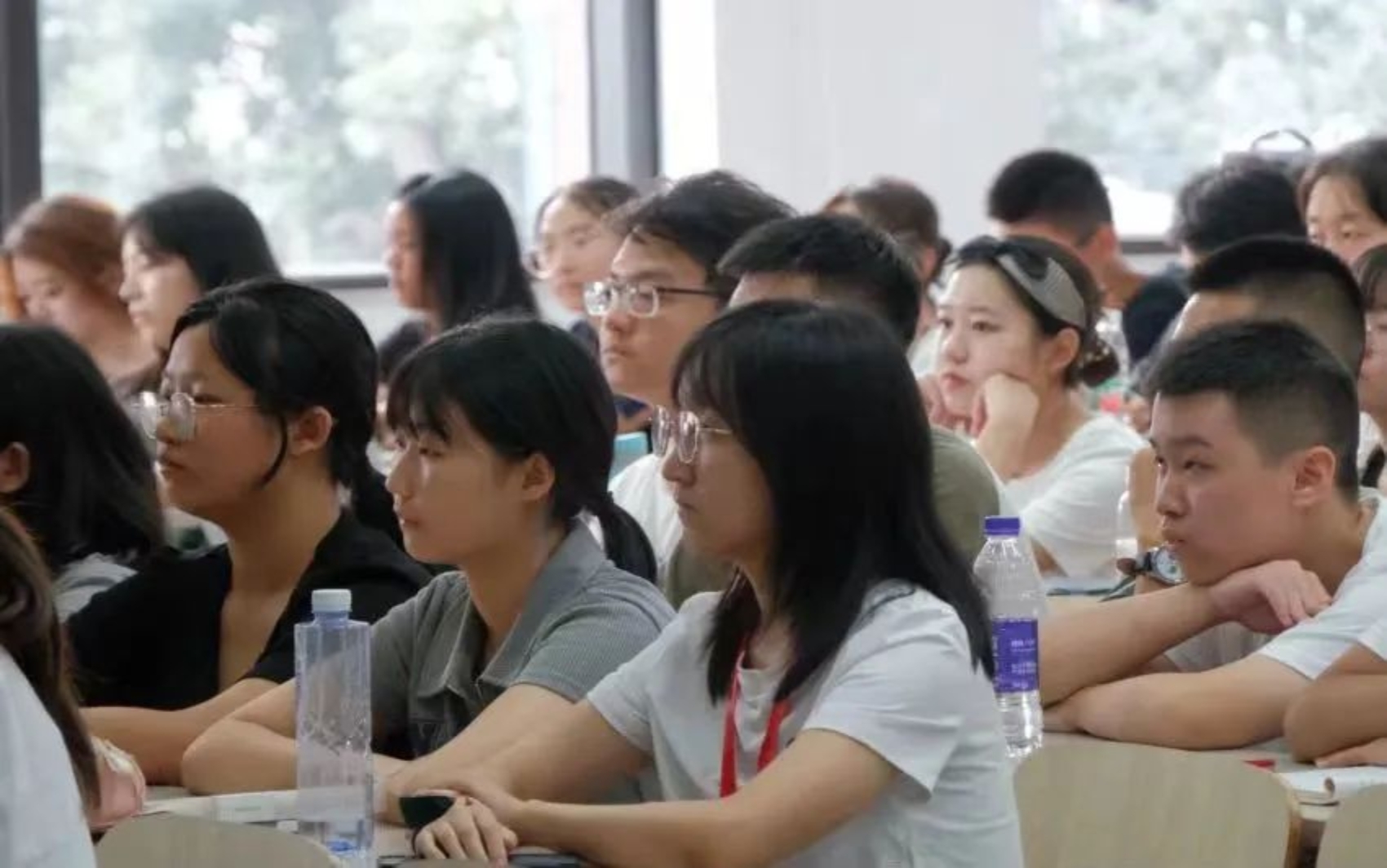
The development of political science at Renmin University of China is closely related to the political development of China. Dean Yang Guangbin divided it into three periods: the first period was from the founding of New China to the re-establishment of Renmin University of China in 1978, and in 1952, the adjustment of colleges and departments, political science and law, journalism, sociology and other humanities and social sciences were abolished, scientific socialism is the political science of this period, this period is mainly to train talents for socialist construction; The second period is probably from 1980 to 2010, this period centered on economic construction, political science and international relations theory mainly developed through learning and reference; The third period began around 2010, when China entered a period of “strengthening up”, in which the country needed not only development but also security, with equal emphasis on politics and economy, of which political security was regarded as the foundation of national security.
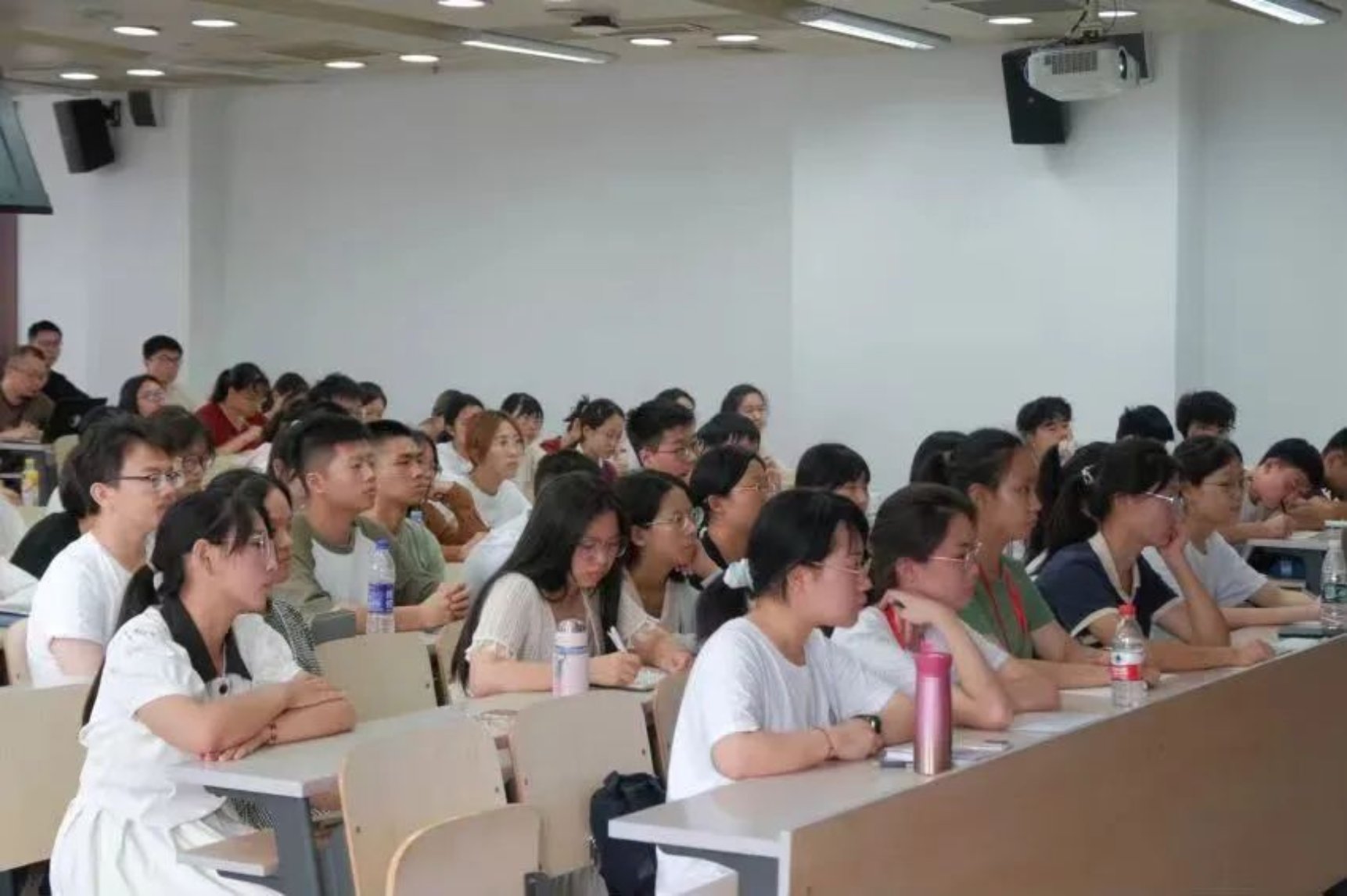
President Yang Guangbin pointed out that political science has national character, and only first-class countries can produce first-class political thought, and he called on Chinese political science to establish an independent disciplinary system, academic system and discourse system. The historical politics and world politics promoted by the School in recent years are exactly the disciplinary concepts with Chinese autonomy. Finally, Dean Yang Guangbin encouraged new students to explore boldly in the academic world and create their own academic world.
Experience the mission of the Party to run the university
02 School history education
On the afternoon of September 5, the School of International Relations held the first Party class for freshmen in Room 0101 of Middlebury Law School. Zhang Xiaojing, secretary of the Party Committee of the School of International Relations, taught a special Party class with the title of “Returning to the scene of Big History – Discussing the academic accomplishment and scientific research ability of students of National Customs by taking the School history Research as an example”, and the freshmen of the school participated in the learning. The party course was presided over by Shi Xiaoning, secretary of the Party Affairs Department of the Institute of International Relations.
Party Secretary lecturing: Returning to the “scene” of big history — Taking school history research as an example to discuss the academic quality and research ability of national Customs students
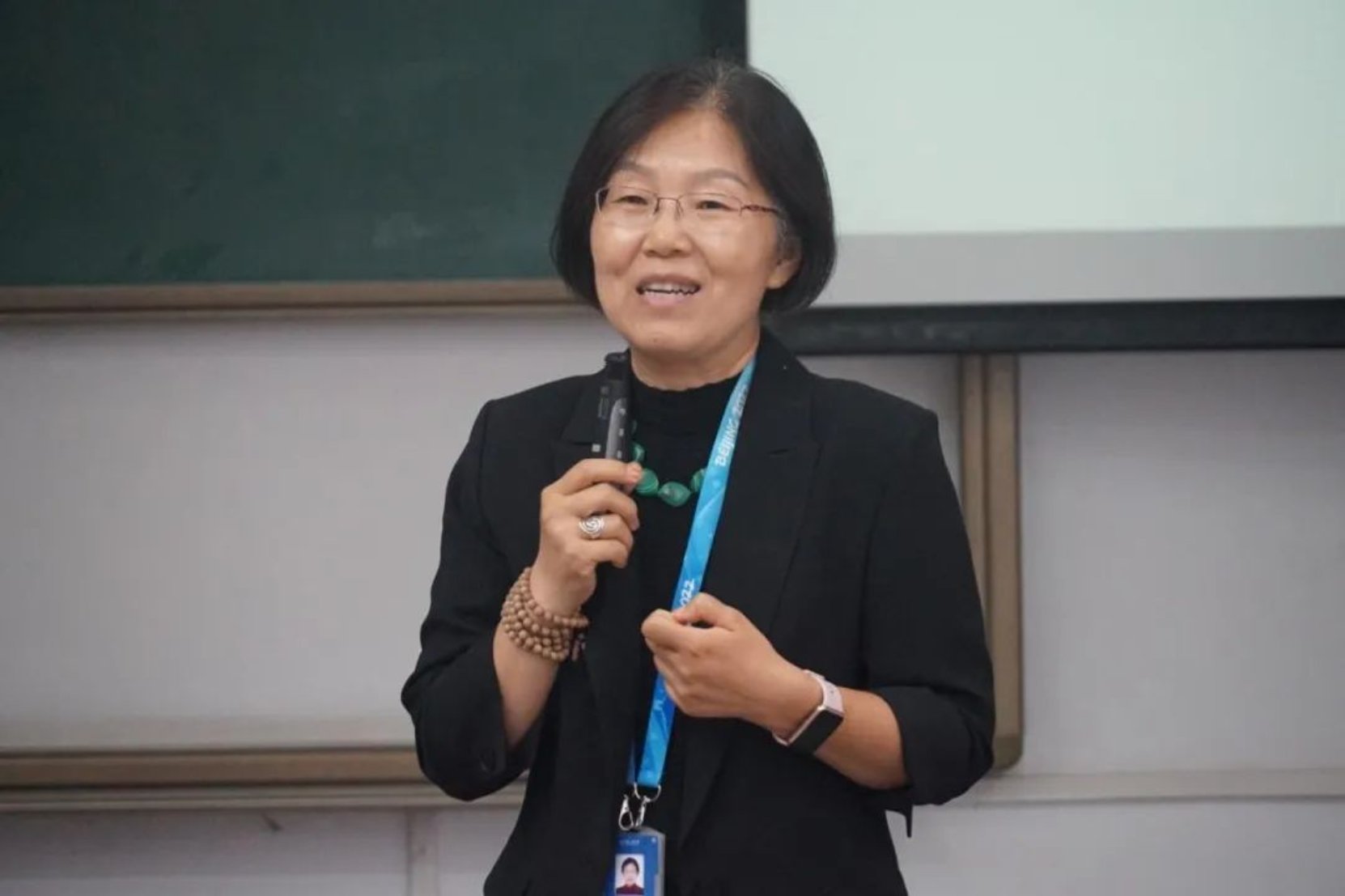
Mr.Zhang Xiaojing first took the important speech spirit of General Secretary Xi Jinping during the visit of Renmin University of China as the starting point, and pointed out the significance of returning to the scene to study school history. Taking “What is needed to return to the ‘scene’ of the university history” as the main line, she led the students to review the history of Renmin University of China and its predecessor, Northern Shaanxi Public School, North China United University and North China University, and introduced the academic accomplishment and scientific research ability for the study of the university history:
First, the historical research of Renmin University of China and its predecessor should be carried out under the background of the research of party history and national history, and from the broad perspective of the evolution of modern and modern history. For example, the history of Northern Shaanxi Public School, the predecessor of our school, is an important part of the study of the CPC Central Committee in Yan’an. As the first new formal university founded by the Communist Party of China, Renmin University of China has been sharing the same destiny with the Party and the country since its birth. Therefore, in the study of school history, we should deeply understand and understand the red blood and red gene of Renmin University of China.
Second, for the study of the history of Renmin University of China, we should do a good job in the collection and sorting of historical materials, and pay attention to the important role of the school history research resources, including all kinds of historical records, media reports and physical objects formed in the process of running the school. Zhang Xiaojing said that there is still great room for improvement and development in the collation and editing of the history of Renmin University of China. You can also combine the study of the history of the university with your own academic research field, do a good job in topic selection, and dig into the academic resources contained in the history of the university.

Third, we should pay attention to the study of college history and deeply understand the close relationship between college history and school history. Mr. Zhang introduced the history of discipline development of the School of International Relations of Renmin University of China to the students in depth, and encouraged the students to feel the profound connection between discipline development and national development in the process of grasping the historical evolution of the discipline, cultivate the feelings of family and country, and establish professional ideals.
Finally, Ms. Zhang Xiaojing has some expectations for the new students. She pointed out that from “approaching” school history to “entering” school history, we should lay a good foundation of research methods, systematically master relevant research skills, and enhance our professionalism; It is necessary to consolidate the theoretical foundation, pay attention to the study of basic disciplines and basic theories, and make the Party’s innovative theory study, school history study and professional study overall through; It is necessary to combine the study of school history, professional research, inheritance and development of excellent traditional Chinese culture with in-depth exploration of the “scene” of China’s reform and development, and explore the international experience of diverse cultures, read thousands of books and travel thousands of miles, and construct the world outlook, outlook on life and values in reading and traveling.
Explore the core nature of university education
03 Professional education
On the morning of September 5, 2023, the School of International Relations held a series of lectures on freshman entrance education – Undergraduate and graduate Professional Navigation Course in Room 0102 and Room 0101 of Mingde Law Building respectively.
Professional Navigation Courses: Undergraduate, What is University study?
On the morning of September 5, 2023, the School of International Relations held a series of lectures on freshman entrance education – Undergraduate Professional Navigation Course in Room 0102, Mingde Law Building. The lecture was delivered by Professor Li Wei, Vice President of the School of International Relations, and discussed “What is university learning” with the freshmen of class 2023. The lecture was presided over by Liu Yuxi, secretary of the Youth League Committee of the College.
In the lecture, Mr. Li Wei first pointed out that different stages of learning should have different emphases. In the undergraduate stage, students should strive to learn diversified knowledge, get used to the debate between teachers, improve the ability to make choices, and cultivate the courage of self-exploration.

